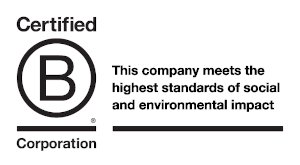At the beginning of February, I was hugely privileged to be invited on the Technology Strategy Board funded mission to the US to share best practice in relation to the Future of cities. A cohort of 14 representatives from across government, academia and industry headed first to Chicago then to San Francisco and New York.
The purpose of the mission was to share knowledge and best practice with colleagues from the US working in areas of Smart Infrastructure, Big and Open Data, citizen engagement, urban development and resilience. Over the course of a relentless but inspiring 10 days we met over a hundred people through a series of workshops, site visits, seminars and meetings… way too much information was gathered to capture in a single blog! So there will be more to follow.
My role in the team was to capture insights and present UK best practice in relation to urban sustainability and resilience.
Throughout the visit we saw great enthusiasm for Smart Infrastructure and a belief that associated innovations will have a transformative impact on the way we live. And it is clear that technology in these areas will help us to operate City systems more efficiently.
What was less clear is how their implementation will align with the delivery of broader sustainability objectives. We were shown a number of examples where technology had delivered efficiencies resulting in the need to ‘redeploy’ people. Against a backdrop of growing inequality, how the future cities agenda will deliver benefits to all citizens is perhaps less certain.
Big Data, Open Data were also hot topics, all the cities have embraced open platforms and all have vibrant hack communities. There is a huge opportunity for cities to align the hack challenge more closely to city needs, and more importantly citizen needs.
But perhaps the main takeaway from the mission is how much the UK has to offer into this space….. and how much we have already delivered despite great challenges from governance and funding structures.
Included in our gang were Colin Birchenall from Glasgow City, Stephen Hilton from Bristol City and Ben Plowden from Transport for London. They each presented some of the fantastic work each of their cities is actually delivering in practice.
From Colin we heard how the investment from the Technology Strategy Board was being used to create the City Technology Platform that will pull over 200 data sets together in order to help manage city systems more effectively and in an integrated way. Stephen talked of the playable city and using technology to engage the citizens of Bristol. And Ben presented the integrated transport network operated by TfL and future investment to support the continuation of the trend away from personalized vehicle use in London.
All compelling and very practical examples of how technology is improving citizen experience of cities and extremely well received by our counterparts in the US, prompting one leading academic to declare in partial disbelief ‘and you wanna hear from us on how to do it?’
America is starting from a different place to the UK, and the scale of the challenge is much greater. A common theme throughout the trip was how US governance and funding structures are paralyzing attempts at a more top down approach to fostering smart cities and urban regeneration, and even basic improvements in infrastructure.
Across breadth of the Future cities agenda, the US is grappling with many of the same issues as us from trust around the use of data, to deployment of smart infrastructure at scale and building city resilience. And this shared challenge brings many opportunities.
The question for the UK is how to package our offering up for the US market, and generate a pull for UK expertise. As one of our hosts Jared Blumfield from the EPA put it, ‘the UK should be far less self-deprecating about what we have to offer’.
More about common data and governance issues in the next installments.




